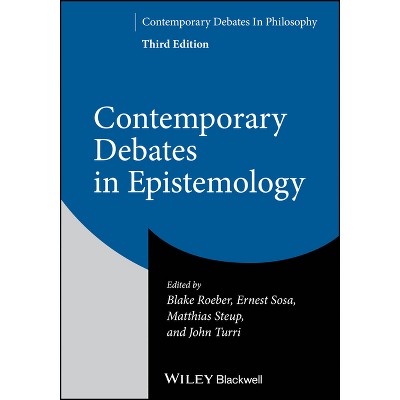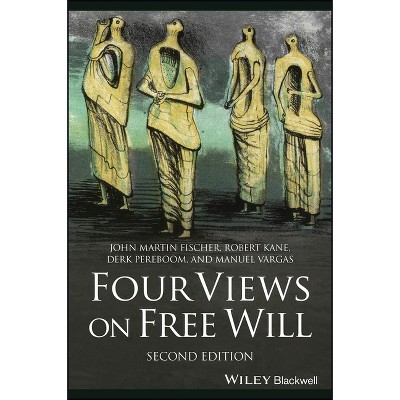Sponsored

Contemporary Debates in the Ethics of Artificial Intelligence - (Contemporary Debates in Philosophy) (Paperback)
Pre-order
Sponsored
About this item
Highlights
- A cutting-edge selection of current issues and explorations of the ethics of artificial intelligence As artificial intelligence continues to influence virtually every facet of modern life, Contemporary Debates in the Ethics of Artificial Intelligence offers a timely and rigorous examination of the field's most pressing questions.
- About the Author: Sven Nyholm is Professor of the Ethics of Artificial Intelligence at LMU Munich and one of the Principal Investigators at the Munich Center for Machine Learning.
- 512 Pages
- Philosophy, Ethics & Moral Philosophy
- Series Name: Contemporary Debates in Philosophy
Description
Book Synopsis
A cutting-edge selection of current issues and explorations of the ethics of artificial intelligence
As artificial intelligence continues to influence virtually every facet of modern life, Contemporary Debates in the Ethics of Artificial Intelligence offers a timely and rigorous examination of the field's most pressing questions. Equally useful in the classroom or as a reference for interdisciplinary research, this volume fosters informed and critical engagement with the ethical dimensions of artificial intelligence in today's world.
Curated by renowned scholars Sven Nyholm, Atoosa Kasirzadeh, and John Zerilli, Contemporary Debates in the Ethics of Artificial Intelligence brings together a dynamic mix of established leaders and emerging voices from both philosophy and computer science. The result is a uniquely structured collection of debates that not only introduces key concepts--such as agency, moral status, and value alignment--but also challenges readers to engage deeply with controversies around bias, transparency, and the societal risks posed by AI technologies.
Providing frameworks for engaging responsibly with current and future AI technologies, Contemporary Debates in the Ethics of Artificial Intelligence:
- Presents a dual-perspective debate format that fosters critical thinking and comparative analysis
- Includes both foundational conceptual discussions and cutting-edge applied ethical issues
- Features original contributions from interdisciplinary experts in philosophy, law, cognitive science, and computer science
- Addresses timely topics such as algorithmic bias, opacity, value alignment, and the moral status of AI
- Explores forward-looking concerns, including the future of AI governance and long-term existential risks
Contemporary Debates in the Ethics of Artificial Intelligence is ideal for undergraduate, advanced undergraduate, and graduate-level courses in philosophy, computer science, public policy, and related disciplines. It is well-suited for courses such as Ethics of Artificial Intelligence, Technology and Society, and Digital Ethics in philosophy, computer science, political science, international relations, and data science programs.
About the Author
Sven Nyholm is Professor of the Ethics of Artificial Intelligence at LMU Munich and one of the Principal Investigators at the Munich Center for Machine Learning. His books include Humans and Robots: Ethics, Agency, and Anthropomorphism and This is Technology Ethics: An Introduction and he serves as the ethics of AI Section Editor for Science and Engineering Ethics.
Atoosa Kasirzadeh is a philosopher, AI researcher, and Assistant Professor at Carnegie Mellon University with joint affiliations in Philosophy and Software & Societal Systems. She is a Schmidt Sciences AI2050 Early Career Fellow, a Steering Committee Member for ACM FAccT, and a widely cited advisor on AI governance and responsible innovation.
John Zerilli is a philosopher and legal scholar specializing in AI, cognitive science, and digital law. He is Senior Lecturer at King's College London, a Research Associate at the Oxford Institute for Ethics in AI, and he holds a Schmidt Sciences AI2050 Early Career Fellowship. His books include The Adaptable Mind and A Citizen's Guide to Artificial Intelligence.
Shipping details
Return details
Trending Book Pre-Orders











